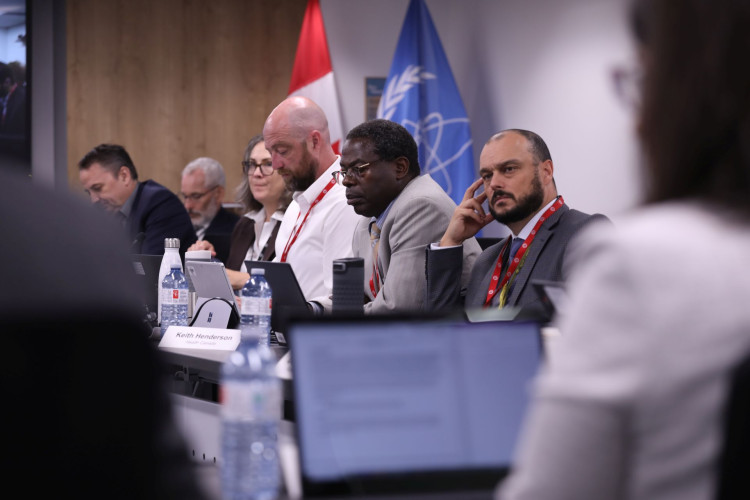An International Atomic Energy Agency (IAEA) team of experts has concluded a five-day follow-up mission to review the emergency preparedness and response (EPR) framework for nuclear and radiological emergencies in Canada.
The Emergency Preparedness Review (EPREV) follow-up mission took place from 26 to 30 June and aimed to assess the progress made by Canada in implementing the recommendations provided during the initial EPREV mission conducted in 2019.
During the follow-up mission, a team of international experts, under the IAEA’s coordination, conducted a comprehensive review of Canada's EPR capabilities related to nuclear incidents against the IAEA Safety Standards in EPR. The assessment covered various aspects of Canada's nuclear emergency preparedness, including the regulatory framework, EPR arrangements, training and exercises, and radioactive waste management in an emergency.
The review was requested by the Canadian government and hosted by Health Canada and the Canadian Nuclear Safety Commission (CNSC). The review team – comprising five experts from Australia, France, Romania, United Kingdom and the United States, as well as one IAEA staff member - met in Ottawa with officials from Health Canada, CNSC, Public Safety Canada, Natural Resources Canada, Ontario, New Brunswick, NB Power, Bruce Power and Ontario Power Generation.
The IAEA team acknowledged the significant efforts made by the Canadian authorities to enhance their nuclear EPR since the initial EPREV mission. The team found that Canada has demonstrated a strong commitment to implementing the recommendations provided by the IAEA and has made notable progress in strengthening its EPR framework.
“Canada is implementing the IAEA’s Safety Standards in a commendable fashion. By hosting the EPREV follow-up mission, Canada has taken a leadership role among nations with mature and complete nuclear power programmes, showing its commitment to continuous improvement,” said Carlos Torres Vidal, the Director of the IAEA’s Incident and Emergency Centre.
The EPREV team identified several strengths during the mission, including:
- Canada is developing a software tool to enable the most effective and efficient use of available radiation monitoring resources in response to a nuclear or radiological emergency.
- Canada decided to further align with the reference levels, generic criteria and operational intervention levels provided in the IAEA Safety Standards.
The team also encouraged the Canadian authorities to continue their efforts to further strengthen EPR through, for example:
- Improving Health Canada’s Monitoring Strategy Tool by motivating more stakeholders to complete the tools’ questionnaires.
- All organizations should reinforce the distinction between the termination of their emergency response and the overall termination of the emergency.
“Canada developed an action plan to address the EPREV findings of 2019, including the creation of a federal-provincial-territorial working group to coordinate a national strategy on environmental radiation monitoring in an emergency and formalizing a working group on waste management,” said Peter Elder, the CNSC’s Vice-President and Chief Science Officer. “We are keen on continuing our collaboration with our domestic and international colleagues, and on upholding safety and security as paramount priorities.”
About EPREV Missions
EPREV missions are one of the peer reviews offered by the IAEA to strengthen nuclear safety in Member States. EPREV missions focus on the arrangements and capabilities to prepare for and respond to nuclear and radiological emergencies. EPREV missions are based on the IAEA Safety Standards in nuclear and radiological emergency preparedness and response.
IAEA Safety Standards
The IAEA Safety Standards provide a robust framework of fundamental principles, requirements and guidance to ensure nuclear safety. They reflect an international consensus and serve as a global reference for protecting people and the environment from the harmful effects of ionizing radiation.


